I'm facing a very very strange behavior my application.
I'm going to describe my situation and then explain what is going wrong.
Situation
I have a method with a signature like this:
const StructureDef *getStructure(const std::string &theme, int index);
And I call it in this piece of code:
const StructureDef *sDef = 0;
do
{
sDef = ss->getStructure(theme, rand() % ss->availableStructureCount());
} while (!sDef);
I'm using this do-while structure, because the return value of the getStructure method might be NULL, depending on the combination of theme and index. So basically, what it does is asking random structures until we get a valid one. (If you want to know the detail, take a look at the screenshots.)
The method iterates over a std::vector<StructureDef> using it's ::iterator. And for each StructureDef, it checks if the structure belongs to that theme. If so, post-increase the counter and check if it is equal to the requested index. Like this:
// inside the loop
if (i++ == index)
When this if succeeds, the current StructureDef * is returned:
return sDef;
What is going wrong
I'm using XCode 4.4 it's debugger to see step by step what is going on, which is basically gdb.
The method I explained first, find a StructureDef * that matches my needs. So it returns that pointer. Here is a screenshot of the moment just before it is going to return in the debugger:

(The line after the for-loop is simply return 0;)
Here the pointer sDef * points to 0x1d563270, which is where the correct instance of the StructureDef is located.
Next screenshot is what we get in the piece of code where I called that method:

As you can see, the pointer sDef *, which got the return value of the method, now points to 0x2fe03804. This is not what the method returned at all! I'm thinking that this is pointer points to somewhere on the stack, instead of the heap. (It should be the heap since the std::vector class stores its objects on the heap, right?).
I can't use Valgrind yet, since I'm on Mac OS X 10.8, which isn't supported by Valgrind.
I'm totally surprised by this behavior. I can't see why this is happening... Can it be that my compiler is broken, or is it doing some strange "optimization"?
Thanks in advance!
Martijn
To clarify DeadMG's comment:
I'm using different themes:
iron
wood
ice
etc...
My identifiers look like this:
iron__downside_touch_and_go
iron__platform__700_65
iron__wall_bang
wood__platform__600_40
etc... What I want to do is pick the structure with a specific index within one theme. So not the index the set of structures of all themes together, but the index of the subset of one theme. Take a look at the piece of code again :)
Update!!!
I gave wrong info. The vector is of the type std::vector<StructureDef>!! It stores objects. Not pointers!
So what (I think) I'm doing with the .operator->() call is the same as: &(*it). And it looks like it is working. To me it looked a bit stupid to write & and * after each other.
@Ben Voigt:
Architecture:

Optimisation:
